Skardu is in Baltistan, one of the two admin units of the youngest of Pakistani provinces called Gilgit-Baltistan. Skardu has lofty mountains, some of them snow-capped even in the summer, narrow roads that go winding round and round the mountains, roaring rivers, picturesque valleys, and singing waterfalls. In many ways, it is similar to many other tourist locations in the Northern parts of Pakistan, such as Kaghan, Naran, Swat, Murree. But Skardu possesses a few other features the combination of which make it a unique place.
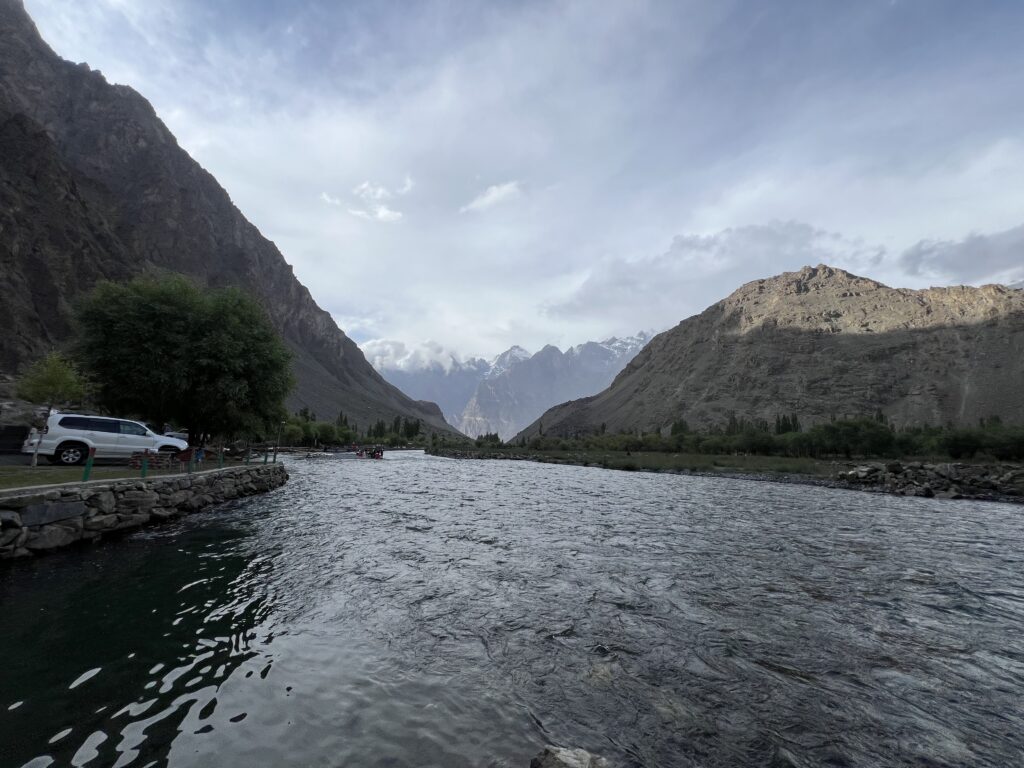
The vast Sarfranga desert, half an hour’s drive East of Skardu, possesses a mysterious beauty and reminded me of Anthony Minghella’s movie The English Patient and Gulzar’s Lekin. Sarfranga is also called a cold desert because in the winters, when the snow falls, it settles on top of the sand – a rare combination of near-opposites. The desert is also a fun place as it hosts jeep rallies, paragliding tours, and motorcycle and horse rides.
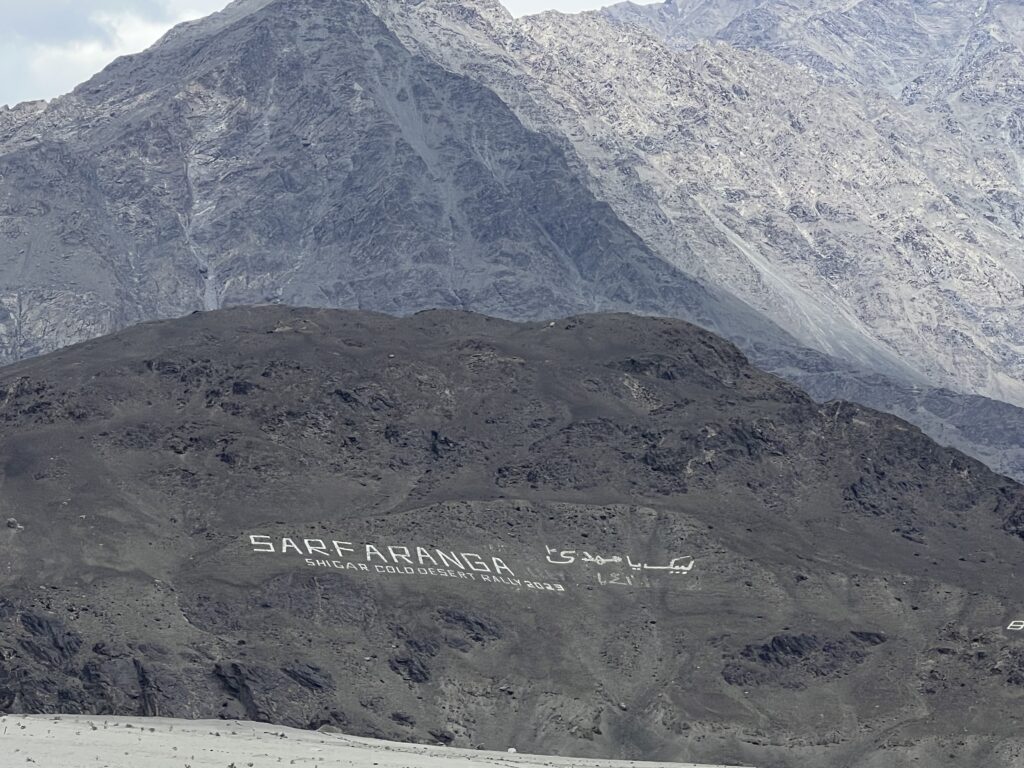
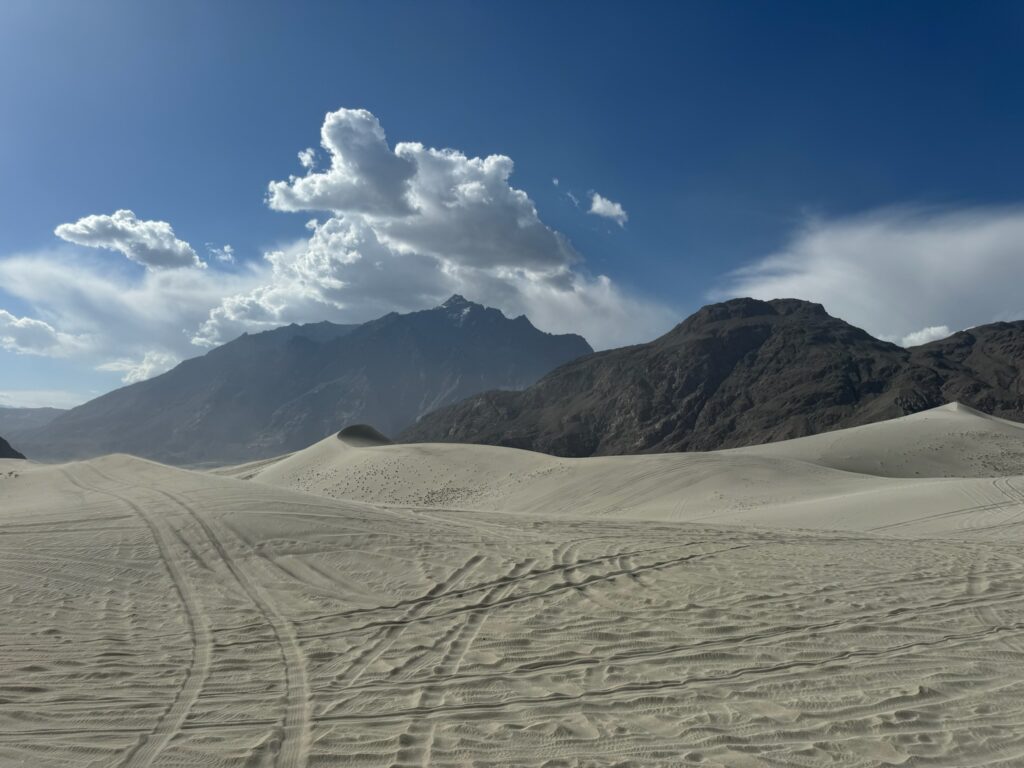
Skardu’s two majestic forts, both built in the 17th century and both acquired by the Serena hotels, are another reason why Skardu is a special place to visit. Shigar fort (https://en.wikipedia.org/wiki/Shigar_Fort#:~:text=It%20was%20built%20in%20the,hotel%20managed%20by%20Serena%20Hotels.) is more than an hour’s drive North-East of Skardu, while Khaplu fort (https://en.wikipedia.org/wiki/Khaplu_Palace) is a further one hour in the same direction.
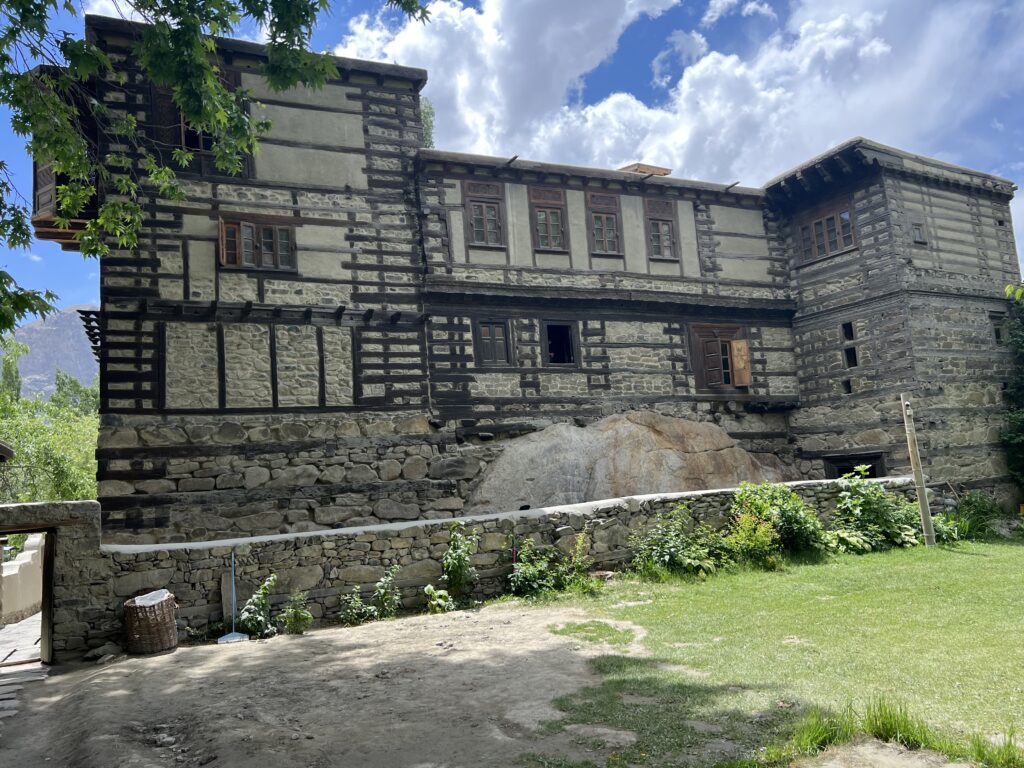
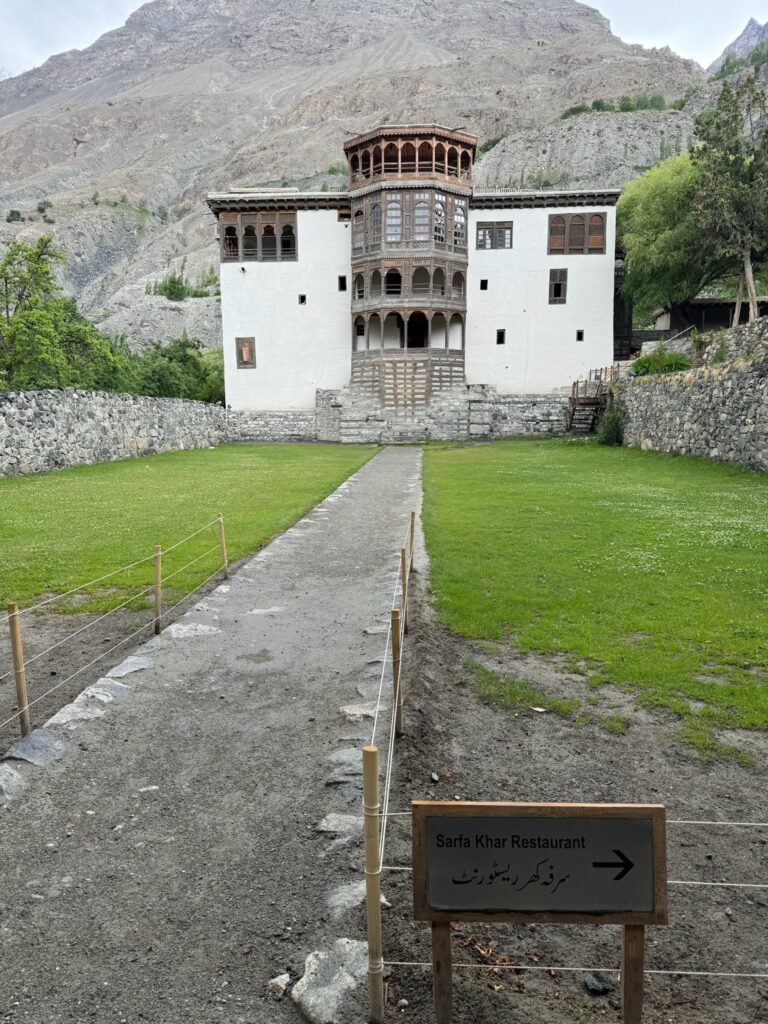
Shigar (left) and Khaplu forts
But for me what makes Skardu stand out are its people. During our recent visit to Pakistan, my daughter complained that Pakistani children do not wave back when you smile or wave at them. I did not try to explain to her where this xenophobia stems from – I’m not sure of it myself. But she had to change her opinion when we visited Skardu. Throughout Skardu and adjacent areas, one observes friendliness and cordiality. Nowhere else in Pakistan have I seen vehicles reversing on narrow roads so willingly to allow oncoming ones to pass as they did in Skardu. In the Bashu valley (seen below), boys playing cricket allowed me and my son to join the game; I reciprocated at the end of the game by donating money for a new cricket bat.
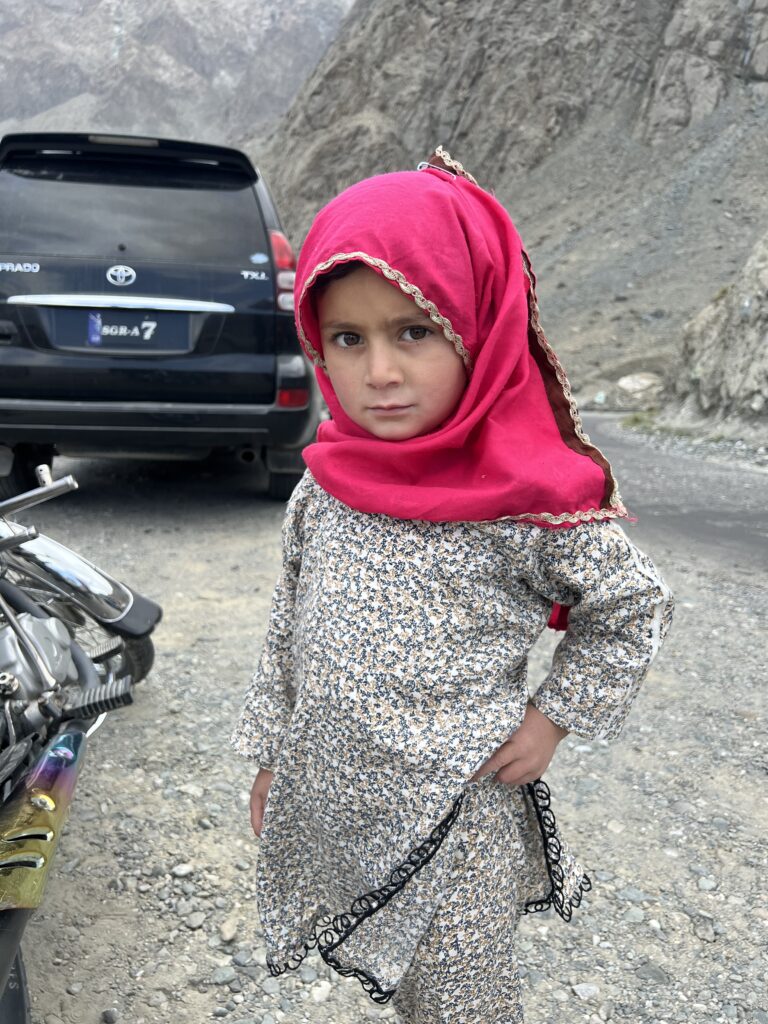
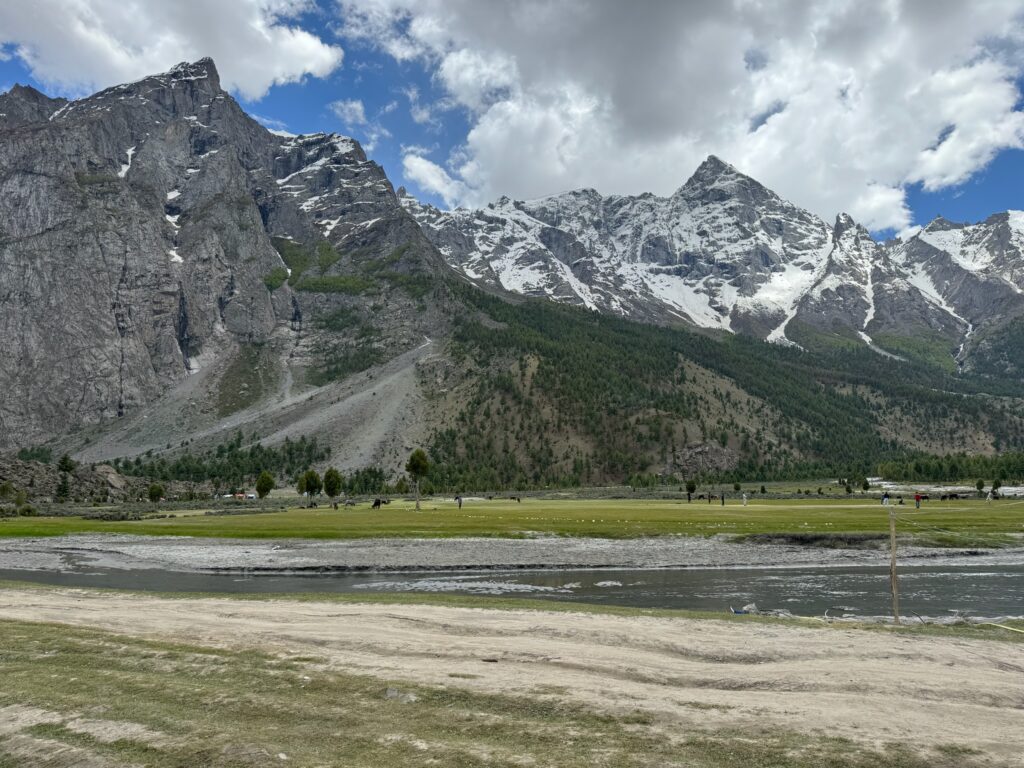
In addition to cordiality, this province boasts nearly 98% literacy rate. While this figure and the benchmark of literacy may be debatable, there is no denying the fact that Skardu people are well-read. One of the sweetest memories of this visit is that of seeing small schoolchildren walking along the road; their seemingly tiny frames in contrast to the long stretch of the road symbolize the challenges that lie ahead; but their smiling faces show their steadfastness. My guess is that Skardu and the adjoining places possess more schools per square mile than any other place in Pakistan. An old man who at first glance looked like a beggar to me surprised me – thanks to the stereotyped image I had in my mind – when he asked me in English: your good name, sir? The shopkeeper who sold delicacies like green tea, dry fruits, and apricot candies, read the English description of a local medicine fluently.
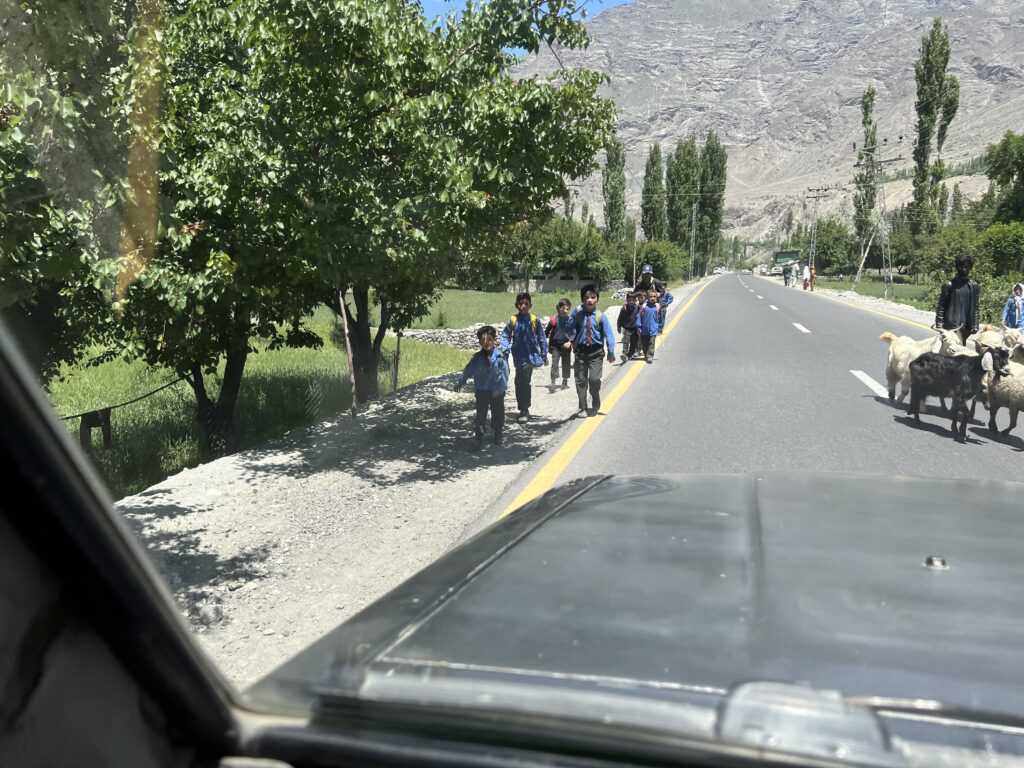
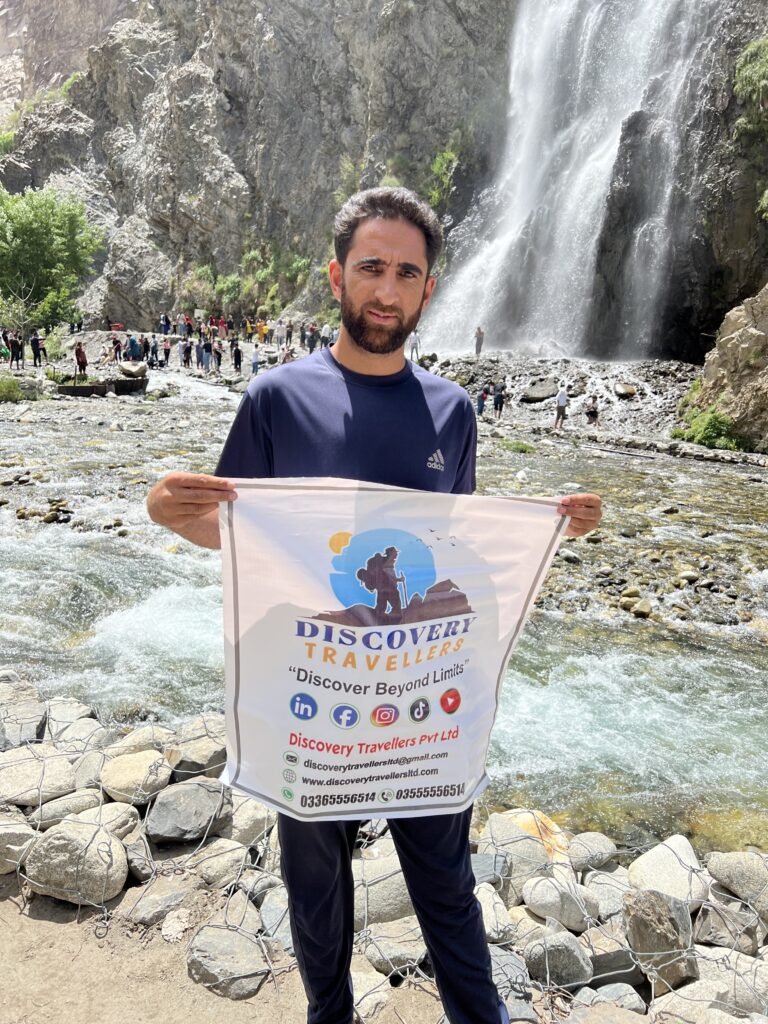
I could not help comparing Skardu with another region a few hundred miles to its West i.e. Khyber Pakhtunkhwa (KPK). There are several similarities: mountainous terrain, dearth of urban facilities, speeding rivers, and tall trees. But in terms of religiosity, the two regions are poles apart. Nearly 80% population in Skardu are Shiite, while the majority of people in KPK are Sunni. More importantly, in Skardu, you would find none of the oppressive religiosity that has become frightening in KPK. The clerics in Skardu strongly emphasize girls’ education, while in KPK, there have been numerous burnings of girls’ schools. In Skardu, women cover their head and appear respectable; in KPK women are supposed to cover their faces too.
Skardu’s culture must have definitely played its part in making the people friendly, approachable, and relatively liberal. But I wonder how much the jihadi war that the US and Pakistani Army enforced on KPK is responsible for the rise of religious extremism in the region. Is Skardu fortunate in terms of its geography – that it does not lie adjacent to Afghanistan, which has been the hotbed of militancy for the last several decades, and that its people did not have to join the jihad? I invite my readers to comment.
Thank you sir I really enjoy with you within five days and it’s pleasure to me that you are traveling me and next year you will come again and we Tour again and thank you so much to write and article about me and my company.
It was a pleasure having your company, Amjad. I wish you good luck! Hope we meet again soon.
Aslam u alaikum.
—
Gilgit Baltistan is a beautiful and unique region, rich in culture and natural beauty. While it is administered by Pakistan, it is important to note that Gilgit Baltistan is considered a disputed territory according to United Nations Resolutions and the Constitution of the Islamic Republic of Pakistan. This region is not officially recognized as a province of Pakistan. We can call it Disputed Territory of Gilgit Baltistan. Not the province.
Skardu, one of the major cities in Gilgit Baltistan, is known for its stunning landscapes, warm hospitality, and rich traditions. Visitors to Skardu are treated as esteemed guests, serving as ambassadors of Gilgit Baltistan. The region’s breathtaking scenery and the kindness of its people leave a lasting impression on all who visit.
—
Zeeshan Haider
Sat, 6th July, 2024
Rawalpindi, Pakistan
Thanks, Zeeshan, sahib. You added to my info. I loved Skardu and I wish the best for Gilgit Baltistan and its people.
A different point of view and perception thats is very nicely written.
Intriguing enough to plan a visit…..
Thanks, Kashif. You being a globe-trotter must not miss it.
Definitely on my bucket list next time I visit with family to Pakistan! It’s great to see progressive Pakistan heart
I’m sure you’ll enjoy the visit. Mr. Amjad from Discovery Travels can be a great help in planning the visit.